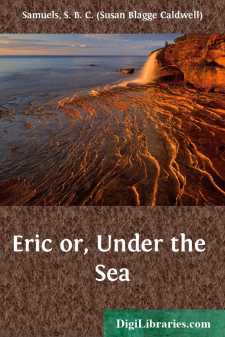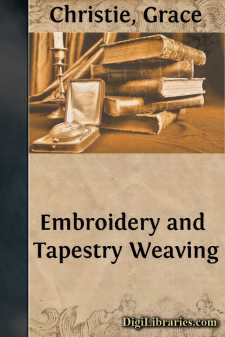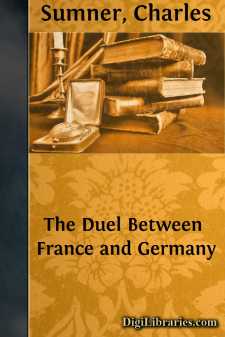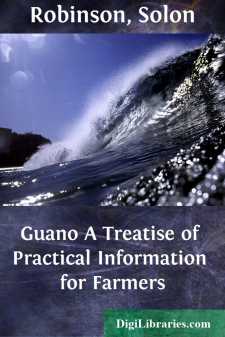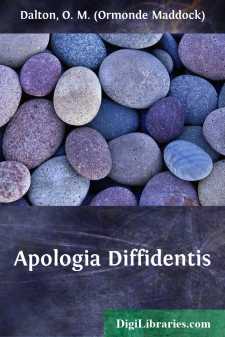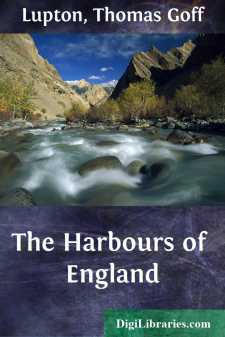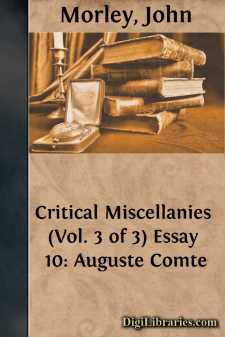Non-Classifiable
- Non-Classifiable 1768
Non-Classifiable Books
Sort by:
CHAPTER I. LEAVING THE CASTLE. Olendorf is not far from Hamburg. The broad and sparkling Elbe washes it on the western side, and with the rugged mountains and the weird grand, old forests upon the north and east, seem to shut the little town quite in from the outer world; yet Olendorf had been an important place and on account of its grand old fortress, Castle Wernier, was a bone of contention...
more...
by:
John M. Garvan
CHAPTER I EXPLANATION OF TERMS "EASTERN MINDANÁO" Throughout this monograph I have used the term "eastern Mindanáo" to include that part of Mindanáo that is east of the central Cordillera as far south as the headwaters of the River Libagánon, east of the River Tágum and its influent the Libagánon, and east of the gulf of Davao. THE TERM "TRIBE" The word "tribe" is...
more...
by:
Grace Christie
EDITOR'S PREFACE Needlework, which is still practised traditionally in every house, was once a splendid art, an art in which English workers were especially famous, so that, early in the XIIIth century, vestments embroidered in England were eagerly accepted in Rome, and the kind of work wrought here was known over Europe as "English Work." Embroideries façon d'Angleterre often occupy...
more...
by:
Charles Sumner
WAR UNDER THE LAW OF NATIONS A DUEL. But no classical authority is needed for this designation. War, as conducted under International Law, between two organized nations, is in all respects a duel, according to the just signification of this word,—differing from that between two individuals only in the number of combatants. The variance is of proportion merely, each nation being an individual who...
more...
by:
Solon Robinson
INTRODUCTION The rapidly increasing use of guano, in the United States, and the growing conviction upon the public mind, that it is the cheapest and best purchasable manure in the world, together with the fact of a great want of information among American farmers, as to the best mode of applying it to the soil, has induced the agents of the Peruvian Government for the sale of guano in the United...
more...
In the matter of avowals the diffident never speak if they can write. That is why my apology for a furtive existence is here set down in solitude instead of being told face to face. You have borne so many years with my unresponsive and incomprehensible ways that shame at last constrains me to this poor defence; for I must either justify myself in your sight, or go far away where even your kindness...
more...
EDITOR'S PREFACE. "Turner's Harbors of England," as it is generally called, is a book which, for various reasons, has never received from readers of Mr. Ruskin's writings the attention it deserves. True, it has always been sought after by connoisseurs, and collectors never fail with their eleven or twelve guineas whenever a set of Artist's Proofs of the First Edition of 1856...
more...
by:
John Morley
AUGUSTE COMTE. Comte is now generally admitted to have been the most eminent and important of that interesting group of thinkers whom the overthrow of old institutions in France turned towards social speculation. Vastly superior as he was to men like De Maistre on the one hand, and to men like Saint Simon or Fourier on the other, as well in scientific acquisitions as in mental capacity, still the aim...
more...
[p5]INTRODUCTION. The Author of the book in hand, having passed through the various scenes through which he would accompany his readers, was prompted to make this offering to the craft and the public in order to relieve his mind of the thoughts had upon the subject of making shoes, as well as to contribute something of a literary character which, in the broad range of possibilities, may become useful...
more...
GERAINT AND ENID Queen Guinevere lay idly in bed dreaming beautiful dreams. The sunny morning hours were slipping away, but she was so happy in dreamland, that she did not remember that her little maid had called her long ago. But the Queen’s dreams came to an end at last, and all at once she remembered that this was the morning she had promised to go to the hunt with King Arthur. Even in the...
more...


